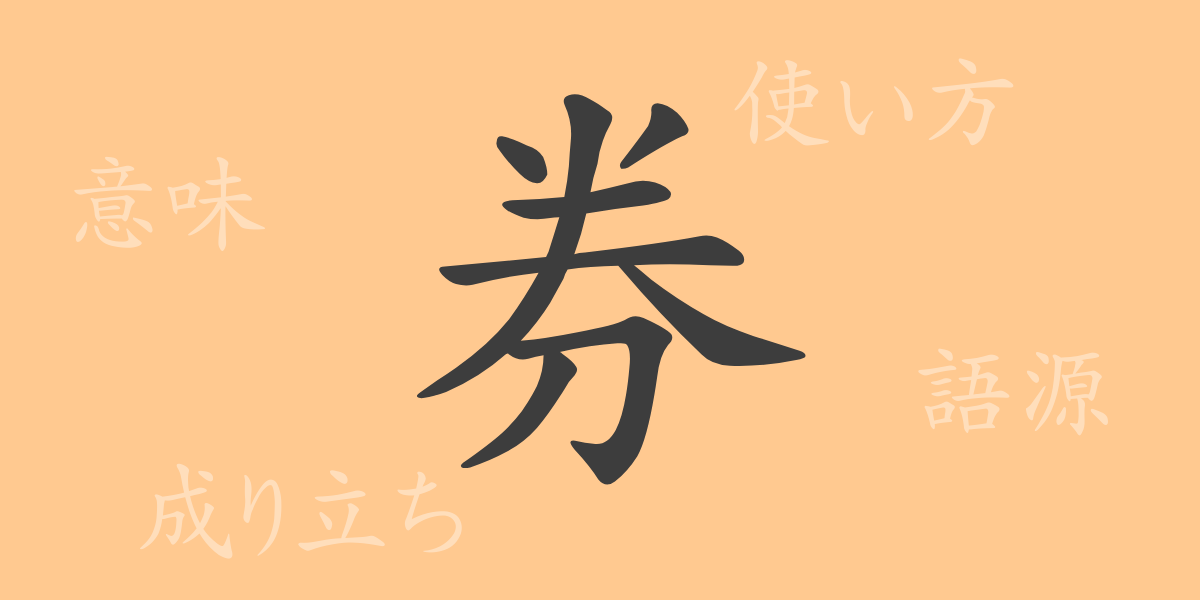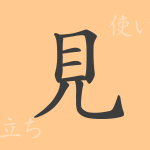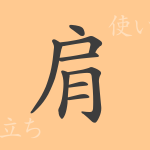Japanese culture is filled with unique characters. Among them, “券” (けん, ken) is one of the essential kanji in our daily lives. This article delves into the origin, meaning, usage, and various idioms and expressions related to “券” (けん, ken), exploring its charm and applications.
Origin of 券
The kanji “券” (けん, ken) originated in ancient China. Tracing its etymology, “刀” (かたな, katana) meaning “to cut” and “巻” (まき, maki) meaning “to roll paper” are combined. Initially, it referred to a cut piece of paper used to indicate documents or contracts, leading to meanings like “certificate” and “document indicating rights.”
Meaning and Usage of 券
“券” (けん, ken) primarily means “certificate,” “document indicating rights,” and “ticket for admission or transportation.” In modern times, it is widely used for tickets, coupons, securities, and other items indicating some form of right or certification. For instance, “入場券” (にゅうじょうけん, nyūjōken) indicates an admission ticket, and “株券” (かぶけん, kabuken) refers to a stock certificate.
Readings, Stroke Count, and Radical of 券
The kanji “券” (けん, ken) contains various information:
- Reading: On’yomi – ケン (けん, ken); No Kun’yomi.
- Stroke count: 8 strokes
- Radical: 刀 (りっとう, rittō)
Idioms, Proverbs, and Phrases Using 券
There are numerous idioms, proverbs, and phrases containing “券” (けん, ken) in Japanese. For example, “回数券” (かいすうけん, kaisūken) refers to a multi-use ticket, “定期券” (ていきけん, teikiken) indicates a season ticket for transportation, and “金券ショップ” (きんけんショップ, kinken shoppu) refers to a store dealing in gift certificates and tickets. Additionally, “券売機” (けんばいき, kenbaiki) refers to a machine selling tickets.
Conclusion About 券
The kanji “券” (けん, ken) is deeply rooted in our daily lives. Used in various contexts, “券” (けん, ken) plays a crucial role in indicating rights and certification, and its convenience and necessity remain constant. Through this article, you should have gained an understanding of the multifaceted charm and history behind “券” (けん, ken). The next time you encounter “券” (けん, ken) in daily life, remember its rich meanings.

























